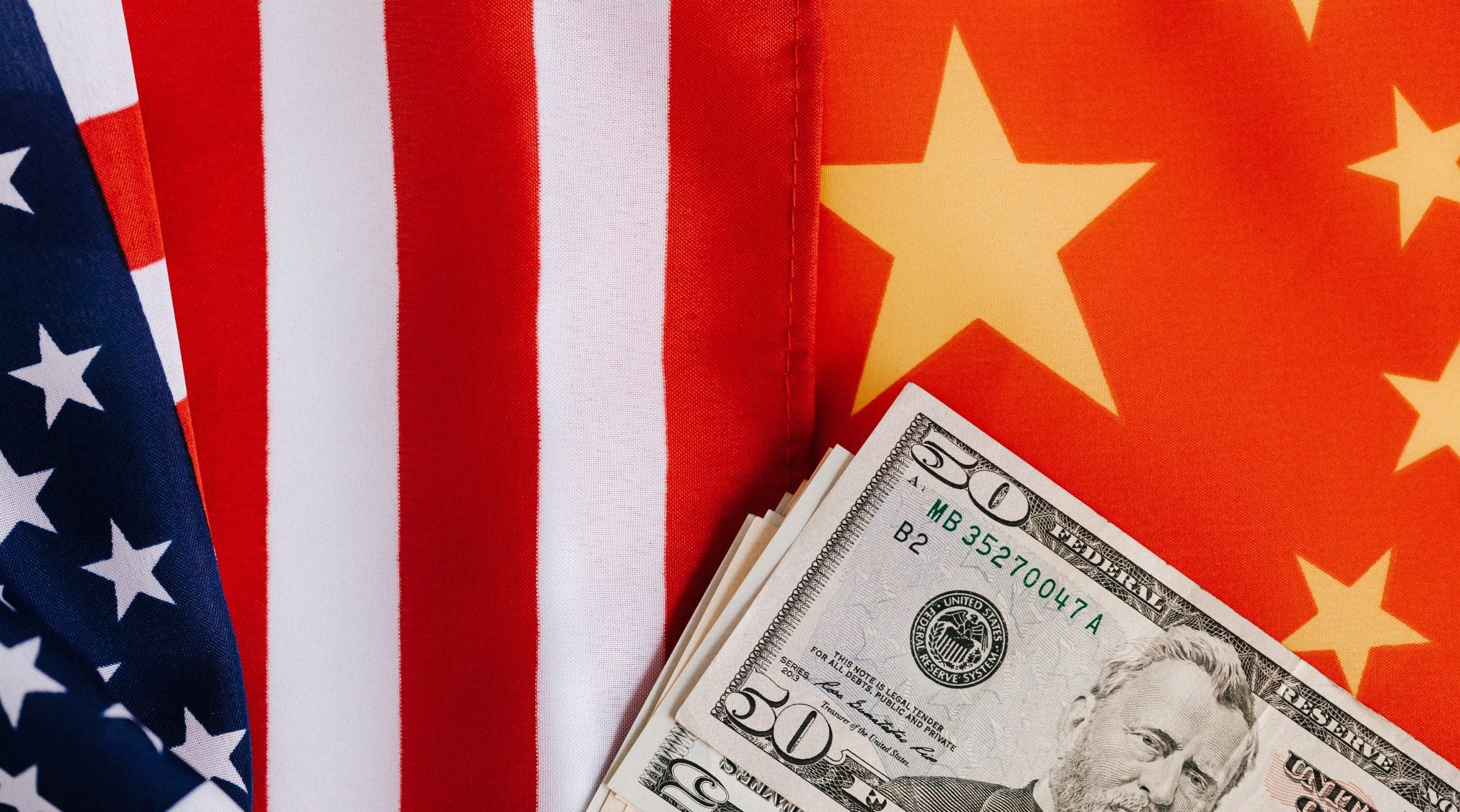“People sitting opposite you when you’re dealing with China, their first priority is the party, not profits,” said Joshua Eisenman, associate professor of public affairs at Keough School of Global Affairs at the University of Notre Dame. He led an October discussion at AmCham on Beijing’s economic and political strategy in Africa.
“Xi Jinping is now the undisputed leader of China and there is no collective leadership; the Communist Party is stronger than ever,” he said. “And we have not managed to trade China into a liberal democracy.”
With both the United States and China vying to expand their global influence, Africa is a key battleground. Also caught in the middle is Egypt, the second-highest recipient of U.S. foreign aid and a strategic piece in China’s Belt and Road Initiative (BRI). The BRI is a global strategy adopted in 2013 involving infrastructure development and investments across 152 countries and international organizations in Asia, Europe and Africa.
China has become “an essential component of President Abdel Fattah el-Sisi’s agenda at home and abroad,” says Haisam Hassanein of the Washington Institute for Near East Policy. “Without its financing and expertise, showpiece projects like the New Administrative Capital and new Suez Canal industrial zone are unlikely to get off the ground.”
Battleground Africa
Egypt and China have signed deals worth $18 billion as part of the BRI in the energy, transport and real estate sectors, then Investment and International Cooperation Minister Sahar Nasr said at an International Monetary Fund (IMF) and World Bank meetings last year in Bali, Indonesia.
Meanwhile, trade between Egypt and China increased 27.6 percent in 2018 to $13.8 billion, according to the Commercial Representative Office in Beijing. Egyptian exports exceeded $1.8 billion, a 37.8 percent increase from the previous year. China-Egypt trade was twice the value of U.S.-Egypt trade, which stood at $6.9 billion in 2018.
The New Suez Canal project should be a pivotal part of the BRI as an important maritime route from China to the West. “U.S. and Chinese firms, at least for now, are active in different sectors, and they represent different models for economic development,” according to Judd Devermont, director of the Africa Program at the Center for Strategic and International Studies. “The Africans in general will welcome the increased attention as long as it doesn’t devolve into us-or-them ultimatums.”
China’s push extends to other countries in Africa, which had seven of the world’s 20 fastest-growing economies in 2017, according to the IMF. China is building ports, roads and railways throughout the continent, but not without strings attached.
Alternatively, U.S.-Africa trade has dipped in recent years to $39 billion in 2017, less than both China and the European Union, according to USAID. The value of China-Africa trade that year was $148 billion, down from a high of $215 billion in 2014, according to China’s General Administration of Customs. In the first half of 2019, China’s total trade with Africa was $101.86 billion, up 2.9 percent year-on-year.

Between eagle & dragon
“China has a lot of surplus money and its trade balance is very [favorable], therefore they are using it aggressively to gain more ground,” says Yahya El Saie, vice chairman of Consulting Engineering Co, which does business with Chinese entities.
“If you look at China as a percentage of Africa trade, you can see a rapid rise. In 2000 it was only about 5 percent, in 2018 we are now above 15 percent,” said Eisenman. In many respects, the trebling of China-Africa trade in the past decade contrasts starkly with U.S.-Africa trade, which slipped to about $61 billion in 2018, according to the U.S. Census Bureau.
Factors contributing to the decline include investment in the domestic U.S. shale oil and fracking industries; limited African finished goods available for export; and anemic African economic growth at 2.5 percent in 2018 and 2.6 percent in 2019, according to the World Bank and Devermont. The U.S. imported $99.5 billion of oil and gas from Africa in 2008; by 2018 it was $17.6 billion.
Complicating matters for China’s aggressive investment in African states is rampant corruption. A 2017 survey by the World Economic Forum of more than 16,000 executives across 140 countries found that corruption was one of the biggest challenges for conducting business with China, behind inefficient government bureaucracy, quality control issues, inflation and policy instability.
“What is undeniable is that China is a much more important economic partner than it was 20 years ago, and it likely will become percentage-wise an increasingly important economic partner for Africa going forward,” said Eisenman.
Shifting supply lines
A report from the U.S. Chamber of Commerce indicates that one of the myriad positive results of the Trump trade war has been the shifting of supply lines from China into Southeast Asia and other developing nations. “This has already impacted countries from Vietnam to Bangladesh to Cambodia,” says Eisenman. “And it might happen with Egypt.”
Imports from nearly every other Pacific Rim country are up, according to the U.S. Department of Commerce, indicating that tariffs have pushed importers to seek other suppliers outside China. More goods were imported from South Korea, the Philippines, India and Thailand, and the category of “other” countries, which the government uses to lump together such smaller trading partners, has jumped from $69 billion last year to $84.2 billion in 2019.
“The U.S. Chamber of Commerce survey suggest only 50 percent of American businesses in China think that things are moving in the right direction,” said Eisenman. “There is a real concern here with the direction China is taking, despite constant claims that it is opening up, I have not seen that over the past decade.”
Eisenman disputed the common wisdom that trade wars and tariffs can only be harmful, saying, “what we see is a move toward a globalization that is more global.”
Foothold or stranglehold?
In order to establish a permanent foothold in Africa, some say China is putting a stranglehold on sub-Saharan nations. Eisenman and others believe China’s “closed-door” approach, is but another instance of Beijing rigging the game to suit the country’s economy and political directives at the expense of its commercial partners. “China is changing and that change is not about to stop,” he said.
“The important thing is they are picking the ripe fruit,” says El Saie. “To be very frank, the Chinese are going for the poorer nations because they are the easier ones.” With the World Bank international poverty line at $1.25 a day, Brookings Institution estimates . one in three Africans live below this metric.
China is not only investing monetarily in these African states, but it is sending large contingents of its own labor force to these impoverished nations, resulting in fewer jobs for locals. “They bring in entire workforces to build and carry out their projects,” El Saie says. “When American, Japanese or European companies come in, they bring a few specialists, but mostly they hire from the host country’s workforce.”
Another result of the rise in Chinese investment is a sharp increase in debt in sub-Saharan Africa, from 27 percent in 2012 to 56 percent at the end of last year, according to the Fitch ratings agency.
The Democratic Republic of the Congo, for example, saw its total debt nearly triple from 40 percent of GDP in 2011 to 118 percent in fiscal year 2017/18, according to the IMF, much of it owed to China. Kenya, Zambia and Somalia also have significant debt.
“China, in the past, has not given the same attention to debt sustainability as the World Bank or Western governments. That is one factor for the sharp rise in debt in sub-Saharan Africa since 2010,” Jan Friederich, head of Middle East and Africa sovereign ratings at Fitch, told news agency GlobalMarkets.
While some nations have tried to renegotiate the terms of their loans “as they hunt for ways to manage their ballooning liabilities amid intense pressure to refinance debt before seeking support from the IMF,” according to a report by Global Capital, most are falling victim to China’s gambits.
The Kenyan government could lose its lucrative Mombasa port if it fails to repay Chinese lenders. Kenya also could lose strategic assets like its Standard Gauge Railway and Inland Container Depot in Nairobi that handles freight hauled on new cargo trains from the seaport.
Tellingly, Kenya got the short end of the stick by agreeing to have debt disputes arbitrated in China, according to media outlet African Stand. Such cases expose the threats associated with “China’s ambitious use of loans and aid to gain influence around the world and of its willingness to play hardball to collect,” according to the New York Times .
Devermont says Chinese companies also engage in corruption and skirt environmental and labor laws when working with African governments, which are less interested in conforming to international standards. “There is also a risk that Chinese financing and projects will prevent other foreign firms from competing on subsequent commercial opportunities, essentially imposing a straitjacket on African governments to deal only with Chinese entities,” he added.
It is the same story for Egypt’s new capital city which is being carried out predominantly by an Egyptian-Chinese alliance that includes Petroleum Projects and Technical Consultations Co. in conjunction with the China State Construction Engineering Corp., which has provided $3 billion in loans so far for the capital’s Central Business District, according to Emirati newspaper, The National .
“At the moment, China is a dominating partner. When someone goes to the bank to take out a loan, he has to follow the bank’s rules,” says El Saie. “It is a matter of whether we can find other sources that can provide what they can without the associated risks.”
However, the inextricable political-military-economic nexus in China, makes doing business with them a much more difficult enterprise than elsewhere. “It is very important to understand that the Communist Party of China is a political organization, it has political power as its ends and it may use economics as a means,” Eisenman said. “In China, economics, military and politics are a means of control and expanding its power around the world,”
Decoupling vs. de-escalation
Questions surrounding China’s long-term ambitions in Africa abound, as the world watches and waits as to whether China and America will undergo a de-escalation of tensions or an economic decoupling that could have a wide-ranging fallout.
Decoupling “is not even a policy discussion that I hear in my day-to-day business. That’s not even how we think about that,” says Chad Sbragia, U.S. deputy assistant secretary of defense for China, a newly created governmental position.
In the meantime, shifting of supply lines could create opportunities for Egypt and other nations to do business in countries where China has used its leverage, currency manipulation, exclusionary business practices, protectionism and coercive tactics, according to observers like Eisenman.
Chinese dominance and fast-tracking of essential infrastructure projects in Africa is expected to aid U.S. businesses that depend on transcontinental transportation networks to move products and access consumers, according to Devermont.
This is essential because “globalization has ceased to be global, it has become China-centric, where all roads seem to lead through China,” according to Eisenman. This is due to the fact that China is currently the “manufacturing floor of the world,” and such a reality has “polluted” the promise of globalization.
“What is the future of the global trading system when the second-largest economy in the world is constantly engaged in violations of the trading system?” said Eisenman. “If Egypt is doing it, okay, it is one country and it’s a middle-sized country, but China is a different story and we need to adopt a long-term perspective as opposed to a quarterly earnings report perspective.”
The real trade exchange for many American and U.S.-centric observers, will be how much countries like Egypt sacrifice in the realms of national security, political autonomy and economic independence, with the rise of Chinese economic and political clout.
With supply lines shifting and the Trump tariffs in place, there is mounting pressure on nations to band together to pressure China to open its markets. Eisenman believes this might, at long last, bring forth the “true opening of the Chinese economy, the opportunity where we can defend our intellectual property rights, where we have redress and where we can seek the kinds of protections we have in countries that have the rule of law.”







